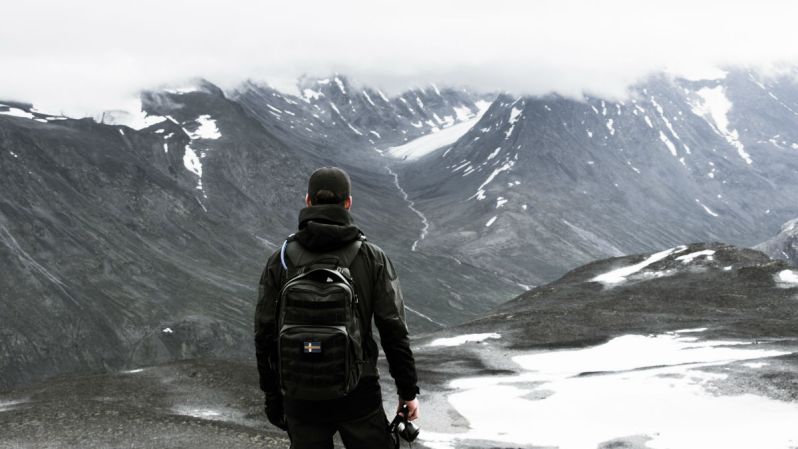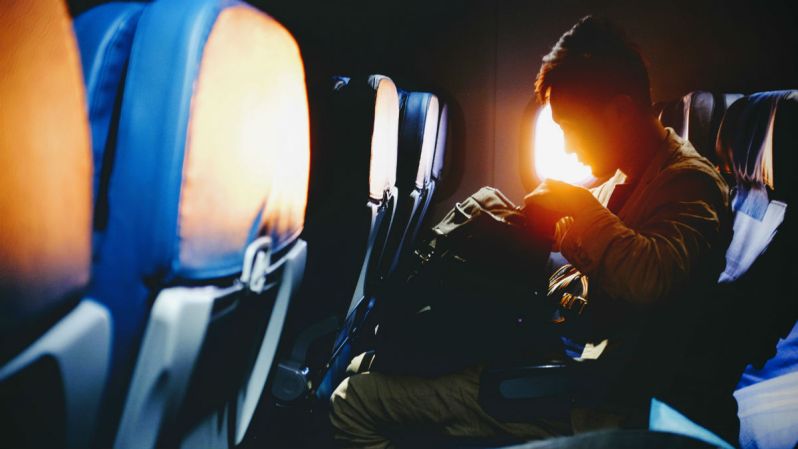
As of 2018, I’ve spent 10 years as a long-term traveler. Most months, I’m traveling more than I’m at home. In that time, I’ve learned a great deal about humility, patience, kindness, compassion, and the world as a whole. It might seem trite, but that doesn’t make it any less true. Travel has indelibly changed the way I see the world and how I move through it. Here, in no particular order, are the 14 best travel tips I’ve learned from a decade on the road.
Patience Is Indeed a Virtue
Americans — as a native New Englander, I certainly include myself here — are very, very high-strung. However, if you spend any considerable time on the road, travel has a way of beating the impatience and intolerance out of you. If you’re going to survive an extended time away from home, you have to let the little things go. Trains don’t always run on time; flights are too often canceled; and your Airbnb host at that amazing, once-in-a-lifetime villa in the Azores is going to never show up. You have to roll with the punches and be ready to accept a Plan B (or Place C … or Plan X).
Embrace the Embarrassment
You will make an ass of yourself — maybe often — in any destination worth visiting. The world is full of new languages, new cultures, and new ways to eat soup that don’t jive with your own. You’ll visit a good many places where, every time you zig, everyone else seems to zag. You’ll stand out, and people will notice. But you’ll be surprised at how few people take the time to call you out on it. In fact, some will even take pity on you as an outsider and politely offer to help.
Backup, Copy, Repeat
How often do you check the batteries in your smoke detector? If you answered, “Every month, just like the fire department recommends,” you’re either lying or a nerd. Backing up your data is no different. Everyone knows they should make backups and duplicates of everything that’s backup-able and duplicatable. But how many actually do? Backup your photos and your smartphone reasonably often, before and during your trip. Make digital backups of your essential travel documents — namely your passport, travel insurance policy, and anything else that makes sense — then email and deliver physical copies to someone you trust.

Say Hello, Wave Goodbye
No one expects you to speak and pronounce their native tongue flawlessly (except maybe the French … kidding). But making an effort goes a long way. Try to speak the local language, even if it’s just a few words. You’ll be amazed at how much this simple gesture can endear you to locals. They might laugh, but they’ll appreciate the attempt. Duolingo (available for iPhone and Android) is a good place to start.
The World Isn’t Out to Get You
Danger, explosions, war, and famine make sexy media headlines. There’s a reason mainstream and social media are in a constant tizzy over all four. But the fact is, the world just isn’t that scary. Sure, no one sane is recommending you honeymoon in Syria, celebrate your birthday in the Congo, or take a leisurely sea cruise off the Somali coast. Of the more dangerous destinations I’ve visited, the crime most likely to befall tourists is petty theft. And while it sucks to lose some cash or your laptop, it’s not the end of the world, and it’s not the all-out violence portrayed on television. Just spend the extra money on a proper travel insurance policy, and you’ll be well covered.
Eat the Local Food
In 10 years of travel, I’ve suffered food poisoning only twice. I’m fairly certain both cases were from naively eating hotel food. If you’re not an adventurous eater, that’s one thing. But if you love trying new things — especially new cuisines — go where the locals go. Eat where the locals eat, and, yes, that includes street food. Be reasonably selective, and find the spots that are packed with locals at lunchtime. Any establishment that attracts a large, reliable crowd is probably safe to try.

Step Outside Your Comfort Zone
If you’re not growing, you’re stagnating. Travel offers the chance to try new and alien things. The fastest way to get off the beaten path and try something new: don’t eat hotel food, ignore the guidebooks, and get (at least a little) lost intentionally. If you’re relying entirely on TripAdvisor, Lonely Planet, and Google Reviews, you’re living someone else’s vacation. Ask around — especially waiters and cab drivers — for what they recommend you see, do, and eat. Just be sure to dig deeper. Sometimes they default to giving tourists the tourist-friendly answers they think they want to hear. Let them know you want a legit locals-only experience.
Slow Down, Grasshopper
Years ago, I spotted a pair of young girls planning a trip to Ireland. They were sprawled out in the back of a bookstore with maps, guidebooks, and their own notes discussing all the places they would see. The list included seemingly every major landmark, town, city, pub, and sheep farm on The Emerald Isle. It looked to be an epic summer journey. When I asked how long they were planning to travel? Ten days. Don’t do this — don’t overplan. If you do, I promise you’ll see more of the inside of your rental car or the local trains than you will of your destination. It might kill you to visit Europe and not see France and Italy and Germany and Spain and, oh, the Portuguese wine country. However, slow travel is infinitely more rewarding. Zero in on one, maybe two, destinations (preferably proximate to one another) and dive in for your entire one- or two-week vacation.
Pack Much, Much Less
Pack everything you think you need, then take half out. If I had to list my top five tips for traveling easier, smarter, and (literally) lighter, this would be Nos. 1, 2, and 3. If you ever find yourself packing something because you might need it, leave it out. Odds are you won’t. Unless you’re traveling somewhere very, very remote, you can buy it when you get there if it turns out you need it after all. Few people enjoy making lists, but packing apps are also a simple and efficient way to streamline your packing game like a pro.

… and Plan Much, Much Less Too
It’s tempting to want to squeeze every last hour out of your trip. Most people plan their vacations with enough sightseeing to last from sunrise to 11 p.m. If this works for you, by all means, go for it. But there’s something to be said for serendipity. Allow wiggle room in your schedule to check out a random restaurant recommended to you by a local, or take a day hike that’s not in any of the guidebooks. My favorite travel experiences are always the ones I didn’t plan in advance.
Carry a Cash Stash
While Americans luxuriate in a credit card-friendly society, most developing countries still rely on cold, hard cash. If you’re visiting a well-worn tourist destination, plastic might be all you need. But veer a bit off the beaten path, and you’ll find many mom-and-pop shops only accept paper currency. For a typical two-week vacation, carry an emergency stash of a few hundred dollars in U.S. 10s and 20s. Make sure they’re not ripped, torn, or otherwise defaced, as some cultures won’t accept them.
Pack a Bandana or Scarf
My most useful, versatile, and cheap piece of travel gear has been a black bandana that I paid less than a dollar for. It works as a scarf to keep my neck warm in the cold, as protection from the heat in warm weather,as a makeshift “sack” at stores where plastic bags aren’t an option (an increasingly common occurrence), an eye mask for the plane, a towel for cleaning up a late-night spill in the dark … the list goes on.

Write It Down
Travel is exhilarating. With the right frame of mind and an adventurous spirit, you might see and do more in two weeks away than in an entire year back home. At the time, you might think that it’s all so amazing, how could you ever forget any part of it? But unless you have a photographic memory or a mind like a steel trap, you will forget. Details fade over time. Photos are a great way to memorialize it all, but there’s something about keeping an old-school journal that feels raw, real, and more connected to the travel experience. I highly recommend Field Notes or Moleskine’s entire line.
Splurge on Noise-Canceling Headphones
You might think fancy noise-canceling headphones are a marketing ploy or an unnecessary luxury, but if you’ve ever experienced the sheer bliss of tuning out a crying baby on a long-haul flight or an Olympic-caliber snorer in the hotel room adjacent yours, then you know what I’m talking about. Bose used to lead the pack in noise-canceling headphones, but you don’t have to shell out $300 for the name-brand cache. Sony is a great, affordable alternative. Here are the best options on the market.


